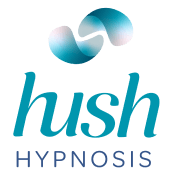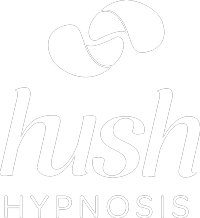Hypnosis has a rich and fascinating history that spans thousands of years. From its early roots in ancient rituals to its current application in modern therapy, hypnosis has evolved significantly. Understanding this journey can help you appreciate its potential benefits today.
Ancient origins of hypnosis
The concept of hypnosis can be traced back to ancient civilizations. Cultures around the world have used trance-like states for healing and spiritual purposes.
Egyptian practices
In ancient Egypt, priests utilized techniques resembling hypnosis to induce altered states of consciousness. These practices were often linked to healing rituals, where the mind and body were believed to be interconnected.
Greek and Roman influences
The Greeks and Romans also explored the power of suggestion. Philosophers like Plato and Aristotle discussed the mind’s influence on the body, laying the groundwork for future exploration of hypnosis.
The rise of mesmerism
In the 18th century, Franz Anton Mesmer introduced the concept of “animal magnetism,” which he believed could influence health. His methods involved inducing a trance-like state to facilitate healing.

Mesmer’s techniques
Mesmer used various techniques, including the use of magnets and direct eye contact, to create a connection with his patients. This approach sparked interest and controversy, leading to further investigation into the phenomenon.
Criticism and evolution
Despite skepticism from the scientific community, Mesmer’s ideas paved the way for future research. His work highlighted the importance of the mind in physical health, a concept that remains relevant today.
Hypnosis in the 19th century
The 19th century saw a shift in the perception of hypnosis, moving from mystical practices to a more scientific

James Braid and the term ‘hypnosis’
Scottish surgeon James Braid is credited with coining the term “hypnosis” in the 1840s. He emphasized the importance of suggestion and focused attention, moving away from Mesmer’s ideas of magnetism.
Hypnosis as a therapeutic tool
Braid’s work laid the foundation for hypnosis as a legitimate therapeutic tool. He demonstrated its effectiveness in treating various conditions, including pain management and anxiety.
The 20th century: Hypnosis in psychology
As psychology emerged as a discipline, hypnosis began to be integrated into therapeutic practices.
Sigmund Freud and the unconscious mind
Freud initially used hypnosis in his practice but later shifted focus to psychoanalysis. However, his exploration of the unconscious mind influenced how hypnosis was viewed in therapeutic settings.
Modern hypnotherapy
By the mid-20th century, hypnotherapy gained recognition as a valid treatment option. Research began to support its effectiveness in managing anxiety, pain, and other psychological issues.
Scientific validation of hypnosis
Recent studies have provided scientific backing for the efficacy of hypnosis, further solidifying its place in modern therapy.

Neuroscience and hypnosis
Neuroscientific research has shown that hypnosis can lead to measurable changes in brain activity. These changes can enhance relaxation and improve emotional regulation, making it a powerful tool for mental health.
Clinical applications
Hypnosis is now used in various clinical settings, including pain management, stress reduction, and treatment of anxiety disorders. Its versatility makes it an appealing option for many seeking relief.
Hypnosis today: A path to healing
In today’s fast-paced world, many individuals are turning to hypnosis as a means of self-improvement and healing. It offers a unique approach to addressing mental health challenges.
Benefits of modern hypnotherapy
- Reframing negative thought patterns – Hypnosis helps you shift your mindset, promoting a more positive outlook.
- Enhancing relaxation – The deep state of relaxation achieved during hypnosis can reduce stress and anxiety.
- Boosting self-confidence – Hypnosis can strengthen your inner voice, empowering you to face challenges with confidence.
Accessible options for everyone
With the rise of virtual hypnotherapy, accessing these benefits has never been easier. At Hush Hypnosis, recorded sessions are available to subscribers at any time, allowing you to engage with the material at your own pace.
Conclusion: Embracing the journey of hypnosis
As you explore the history and benefits of hypnosis, consider how it might fit into your own journey of self-discovery and healing. The evolution of hypnosis reflects a growing understanding of the mind’s power and its role in overall well-being.
If you’re ready to take the next step, consider exploring hypnotherapy as a tool for transformation. Remember, you don’t have to navigate this journey alone—support is available, and change is possible. Explore out hypnotherapy collections or get started with a free session today.





